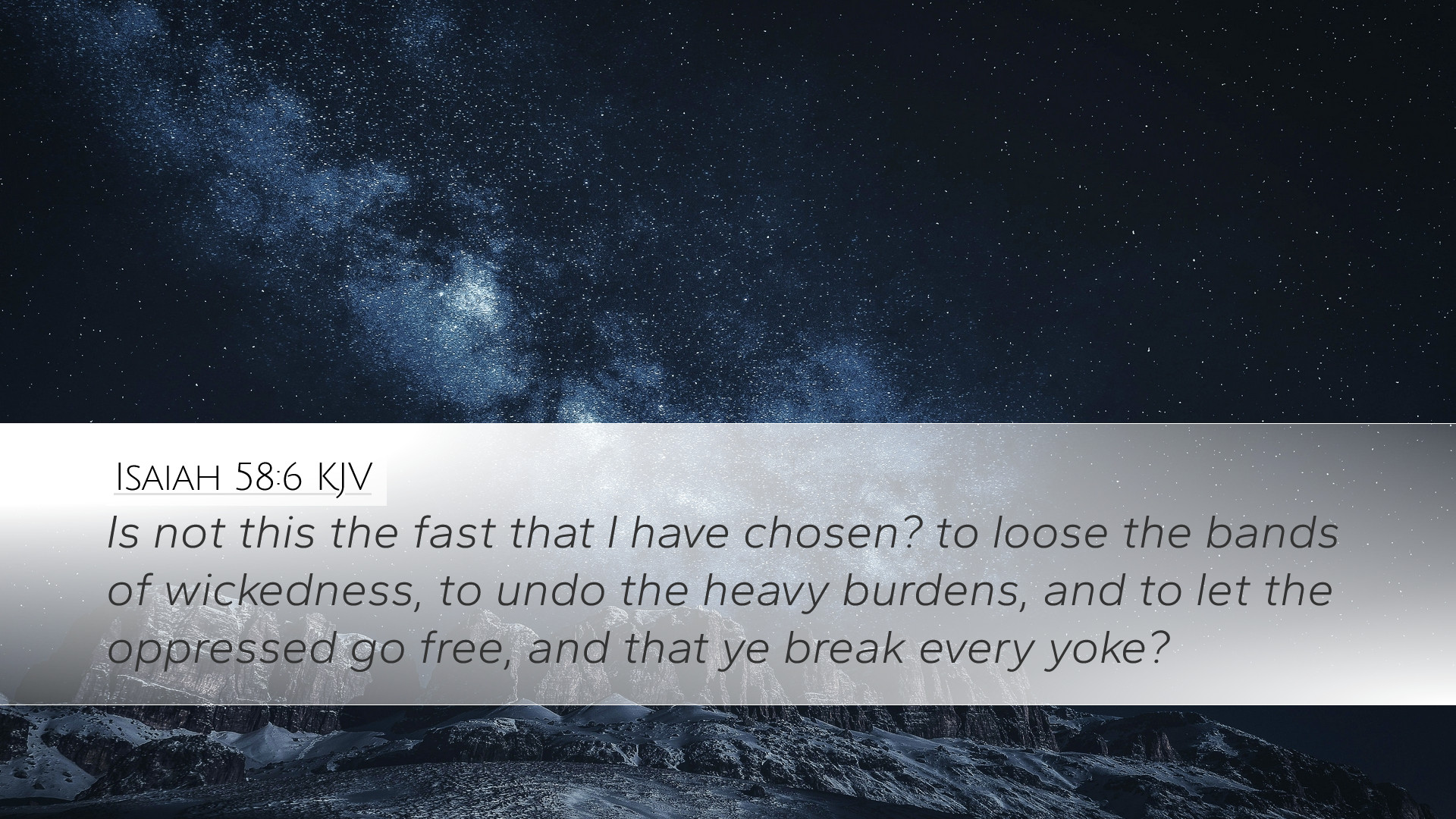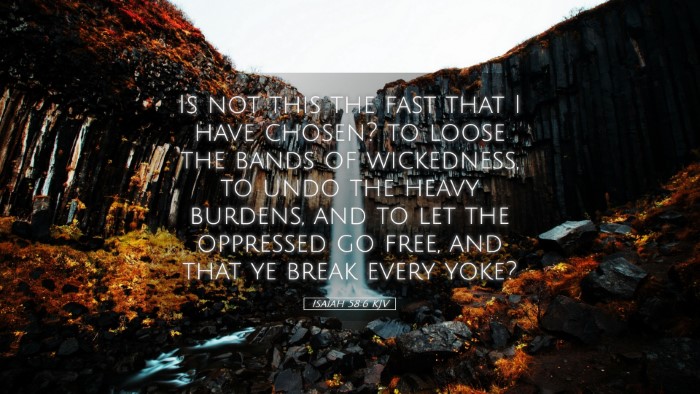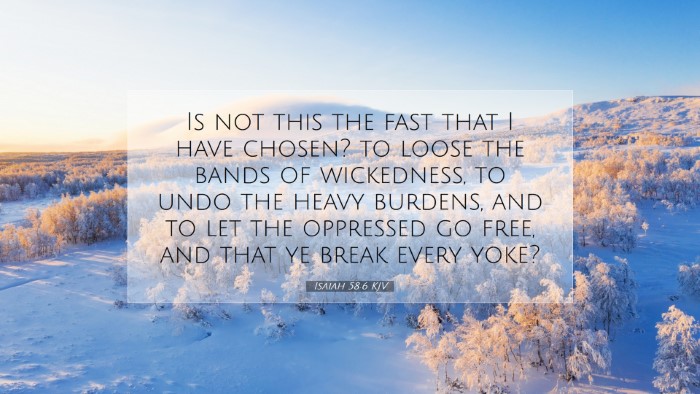Commentary on Isaiah 58:6
Isaiah 58:6 reads: "Is not this the fast that I have chosen? To loose the bands of wickedness, to undo the heavy burdens, and to let the oppressed go free, and that ye break every yoke?" This verse is pivotal in understanding the authentic nature of fasting and worship as espoused by God through the Prophet Isaiah. Through an analysis of public domain commentaries, particularly the works of Matthew Henry, Albert Barnes, and Adam Clarke, we delve into the implications and theological significance of this verse.
The Nature of True Fasting
In this passage, Isaiah articulates the discontinuity between mere ritual fasting and the fast that God desires. Matthew Henry emphasizes that God is not interested in religious exercises that are devoid of compassion and practical righteousness. He asserts that true fasting should express a deep moral and social commitment, aligning oneself with the needs of others.
- Servitude over Ritual: Henry notes that the essence of true fasting lies in serving others, especially those who are oppressed. The act of fasting should evoke a response that embodies humility and benevolence towards the marginalized.
- Spiritual Liberation: The phrase "to loose the bands of wickedness" resonates with the call to break the spiritual chains that ensnare individuals, emphasizing a holistic approach to salvation.
Burdens and Yokes
Albert Barnes expands upon the imagery of "heavy burdens" and "yokes." He suggests that these symbols refer not only to physical oppression but also spiritual, emotional, and social bondage.
- Corporate Responsibility: According to Barnes, the call to "undo the heavy burdens" implies a communal responsibility. Believers are called to alleviate the suffering of those around them, highlighting the interconnectedness of society.
- Breaking Yokes: The act of breaking every yoke is not merely about individual liberation; it signifies the responsibility of the faithful to dismantle systems that perpetuate injustice and inequality.
Theological Implications
Adam Clarke provides a detailed theological reflection on the implications of fasting in relation to social justice. He argues that true worship is reflected not in isolation from the world but in an active engagement with it.
- Worship as Action: Clarke emphasizes that the fast God desires encompasses acts of kindness, mercy, and justice. Worship must be expressed through the practical care of others.
- Significance of Societal Transformation: The call to let the oppressed go free indicates that worship has ramifications beyond personal piety; it calls for a transformation of society where the downtrodden are uplifted.
Practical Applications
In considering the practical applications of Isaiah 58:6, it is crucial for pastors, theologians, and students to recognize how this passage challenges contemporary understandings of worship and spirituality.
- Redefining Fasting: Fasting should not merely be an act of abstinence but rather a means of filling the believer's heart with compassion for those in need. It challenges modern believers to reassess the motivation behind their acts of worship.
- Engagement with Injustice: This passage calls for active engagement with societal injustices, advocating for systemic change. It outlines a biblical mandate for social justice that aligns one’s spiritual life with the ethical treatment of all individuals.
Conclusion
Isaiah 58:6 offers profound insights into the authentic expression of faith through acts of mercy and justice. The commentaries of Matthew Henry, Albert Barnes, and Adam Clarke converge on the notion that true worship entails a commitment to alleviate the suffering of others. For pastors, students, and theologians, this verse serves as a clarion call to seek a faith that looks beyond ritualistic practices and embraces a lifestyle of active love and justice. In an age where superficial acts of worship are prevalent, Isaiah's message remains as relevant today as it was in ancient Israel, urging believers to fast in a way that transforms both their hearts and society at large.


